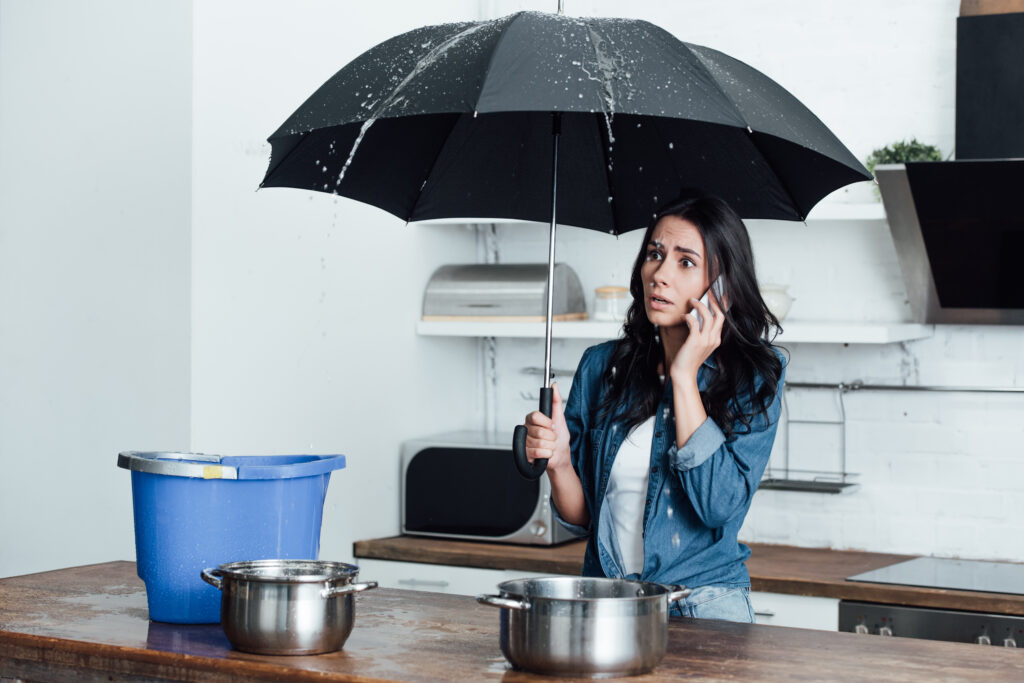Condo Water Leak Who is Responsible?


Is there a water leak in your condo that has caused damage to your unit and you want to know who is responsible to pay for the repairs?
The first priority is to determine the source of the water intrusion. Next, what was damaged by the water is important for a variety of reasons, which includes determining the scope of repair work and mitigation of damage, including a determination as to whether to file an insurance claim.
Who is responsible for the damage caused by a Condo water leak is determined by the source of the water leak and whether the Association or the Unit Owner is responsible for maintaining and repairing the damaged/leaking components. Maintenance and repair responsibilities are delineated in a document called the Declaration of Condominium, (a.k.a. “governing documents,” CC&Rs, or covenants), which all condo associations have.
In Condo communities, most often the Declaration provides that the Association is responsible for maintaining and repairing the common elements, and the Owner is responsible for maintaining the unit. If this sounds straight forward, it is not. Careful consideration to not jump to conclusions regarding what is included in a “common element” versus the unit warrants detailed analysis and frequently the assistance of a lawyer with knowledge of condo law, like the lawyers at Ferrer Law Group.
For example, if the Declaration defines “common elements” as everything in the property “other than a unit”, further determination needs to be made as to where does the unit start, and the common elements begin. Unit boundaries are typically what is referred to as the perimeter walls, floors and ceilings but further determination as to where the “wall starts” requires knowledge such as whether the wall starts at the drywall, paint or studs? Further analysis involves whether the unit floor starts at the carpet or sub-flooring.
To further complicate matters, there is the issue about pipes that exclusively serves the one unit, but part of the piping is on the inside of the unit, while the remainder of the pipe is on the outside of the unit. This analysis requires a combination of complex legal provisions and the plain reading of the Declaration. A Declaration may or may not clearly identified the boundaries of a unit and sometimes the obligation to maintain or repair is not tied to whether the component is a common element or part of the unit. In many instances, an Association will be responsible for maintain certain pipes that, although is located inside the unit boundaries of a given unit, also serves the common elements or other units.
Then there is the problematic instance where a Declaration is silent and/or lacks specificity in delineating responsibility for certain issues. Often, a Declaration will simply describe something like a balcony, as a limited common element but the Declaration should also describe whose responsibility it is to repair and maintain a limited common element. Other times, the Declaration may not delineate what is a limited common element. This is where careful legal analysis on existing case law and the particular facts of your issue will require experience in this dedicated field of law. Generally, the preliminary analysis starts off with whether the component is inside or outside the unit boundaries or whether there is exclusive use versus common use; however, the analysis is far from over.
A good general rule is that if the source of the water leak is from your own unit, (like from an overflowed toilet), then it is your responsibility to make repairs to both your unit or any other units that may have been damaged. If the source is from the “common elements” of the condo building, then the Association may be responsible for all the repairs. However, even if the source of the water intrusion is is coming from the common elements, (like the plumbing supply piping inside the walls), the Association is only responsible to make repairs if the leak was caused by the Association’s failure to maintain the common elements, which is a duty imposed upon the Association by Chapter 718 of the Florida Statutes. If the leak was caused by an unforeseen event, (like a plumbing supply pipe burst due to faulty manufacturing) then the Association is not responsible for all of the repairs and the unit owner would be responsible to repair the damage to their individual unit.
Your starting point before reaching out to an attorney specializing in this area of law to determine who is responsible for a Condo water leak should always be to obtain a copy of the Condo Declaration and any amendments thereto. Also, having a license plumber conduct an inspection of your unit and if possible the surrounding common areas and other units, to determine the source of the water leak is a requirement in these types of cases. Ferrer Law Group has both the knowledge, experience and requisite experts necessary to pursue these types of claims. Contact Ferrer Law Group today!
Legal Disclaimer: The materials within this website are for informational purposes only. They are not legal advice and should not be used as such. Transmission of the information in this website is not intended to create, and receipt does not constitute, an attorney-client relationship. Internet users and readers should not act upon this information and should seek professional legal counsel.
